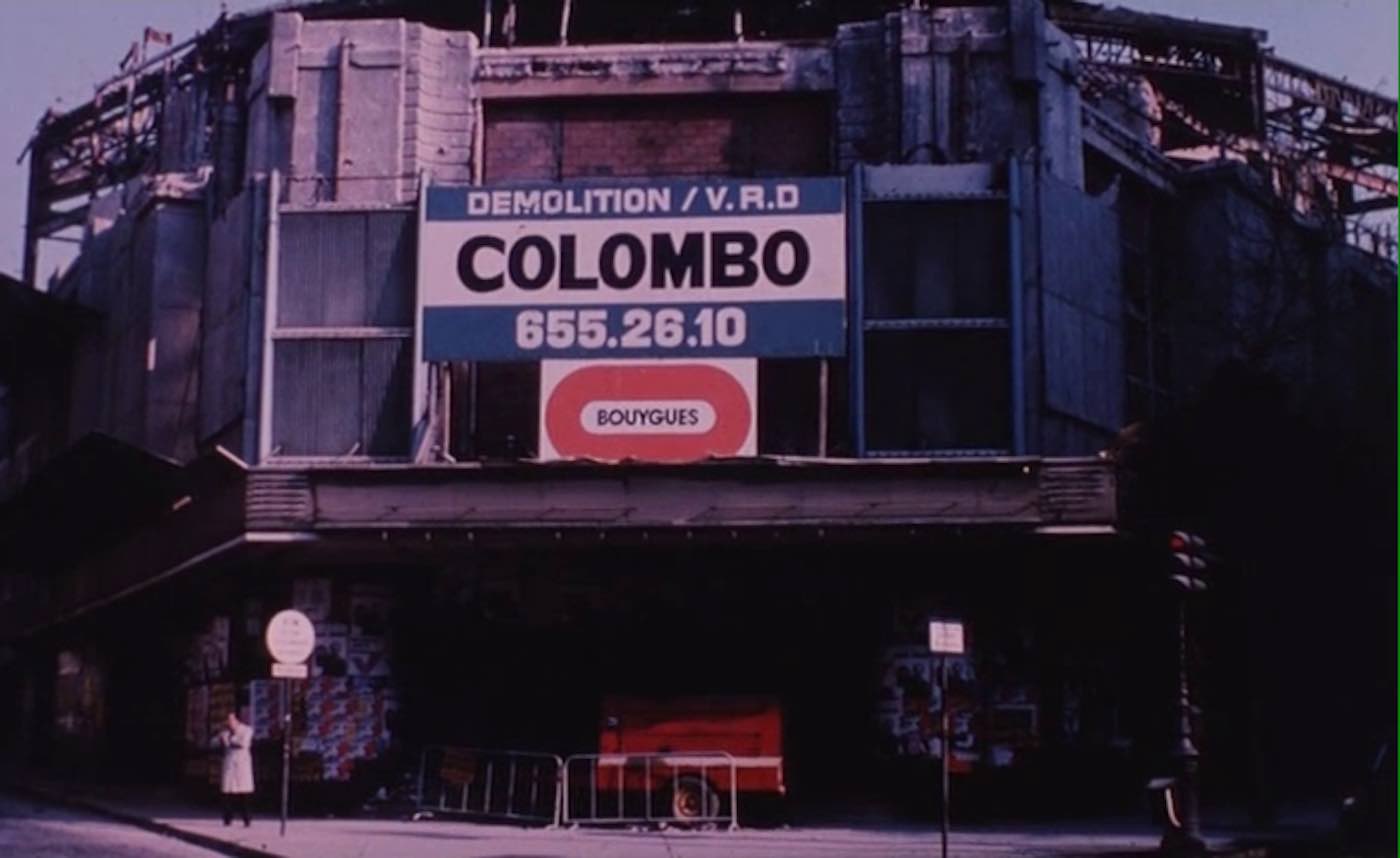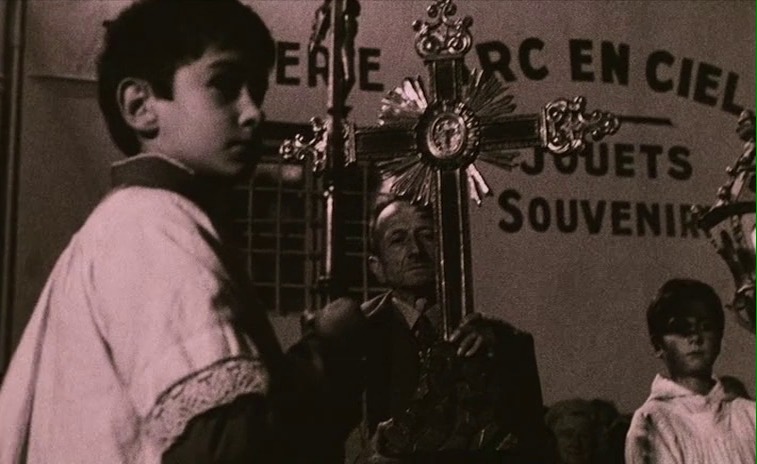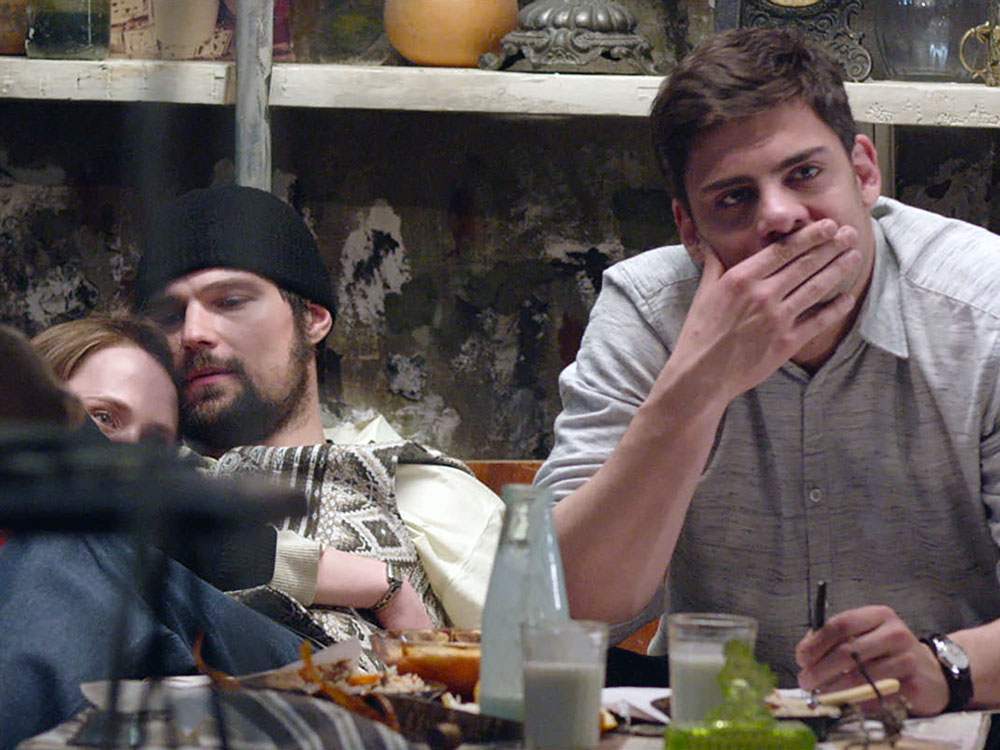ICA is closed from the 30 May – 3 June inclusive.
Nathalie Granger, dir. Marguerite Duras, France 1972, French with English subtitles, 83 mins.
In a country home, with a wild garden and a large pond, live Isabelle Granger (Lucia Bosè), her husband, their two young daughters, Laurence and Nathalie, another woman (played by Duras’s lifelong friend, Jeanne Moreau) and a black cat. Set across a single day, when the man leaves in the morning, the women do little, sitting and sprawling on chairs and sofas, punctuated with cursory concessions to housework. Yet a palpable sense of danger and unease permeates. The radio carries news of a murder that has been committed in a nearby forest. The perpetrators are still at large. Meanwhile, the young Nathalie has started to bring home the inexplicable violence she has been manifesting at school. The outside world comes in only through the radio and windows, until a door-to-door salesman (Gérard Depardieu) enters the house, unannounced, pitching an upmarket washing machine, but carrying with him a large amount of emotional baggage.
Aside from the salesman’s ravings, Nathalie Granger is much less loquacious than Duras’s first three films, and it preempts the experiments with voiceover, sound and music – often disembodied from their source – that would define the rest of her career. For Duras, the film’s piano, which plays an important role for Isabelle Granger, is the primary indicator of the threat underlying the film: “[...] the violence here is music. In concert with a generalised violence. Not isolated. Not treated as an independent cinematic ‘event’. The whole film is steeped in this violence. But all that can be seen of it is the gesture made by a child, the roving gaze of a mother, the rapacious yawn of a cat.”
Preceded by a new restoration of François Barat’s Gaumont-Palace, screening for the first time in the UK.
Gaumont-Palace is voiced by Marguerite Duras, who reads extracts from the script of Nathalie Granger as well as an interview she gave about the film. But there are other voices, too: protestors chanting “Vive la lutte armée des travailleurs chiliens!”, after the 1973 coup d’état and assassination of Allende, and the voice of Jesus Christ who appears in “found footage” of Roberto Rossellini's Acts of the Apostles (1969). Meanwhile, soundless images are repeated: of a Catholic procession in a French village, and of another place of worship: the titular Gaumont-Palace, an icon of architecture and cinema, which was demolished unceremoniously in 1973 and is seen in ruins.
Programme
Gaumont-Palace, dir. François Barat, 10 min.
Nathalie Granger, dir. Marguerite Duras, 83 min.
The screening will be preceded by an introduction by filmmaker and radical educator Saeed Taji Farouky.
Aside from the salesman’s ravings, Nathalie Granger is much less loquacious than Duras’s first three films, and it preempts the experiments with voiceover, sound and music – often disembodied from their source – that would define the rest of her career. For Duras, the film’s piano, which plays an important role for Isabelle Granger, is the primary indicator of the threat underlying the film: “[...] the violence here is music. In concert with a generalised violence. Not isolated. Not treated as an independent cinematic ‘event’. The whole film is steeped in this violence. But all that can be seen of it is the gesture made by a child, the roving gaze of a mother, the rapacious yawn of a cat.”
Preceded by a new restoration of François Barat’s Gaumont-Palace, screening for the first time in the UK.
Gaumont-Palace is voiced by Marguerite Duras, who reads extracts from the script of Nathalie Granger as well as an interview she gave about the film. But there are other voices, too: protestors chanting “Vive la lutte armée des travailleurs chiliens!”, after the 1973 coup d’état and assassination of Allende, and the voice of Jesus Christ who appears in “found footage” of Roberto Rossellini's Acts of the Apostles (1969). Meanwhile, soundless images are repeated: of a Catholic procession in a French village, and of another place of worship: the titular Gaumont-Palace, an icon of architecture and cinema, which was demolished unceremoniously in 1973 and is seen in ruins.
Programme
Gaumont-Palace, dir. François Barat, 10 min.
Nathalie Granger, dir. Marguerite Duras, 83 min.
The screening will be preceded by an introduction by filmmaker and radical educator Saeed Taji Farouky.
François Barat is a filmmaker and writer. In the 1970s, he produced several films by Marguerite Duras (including Le Camion and Son nom de Venise dans Calcutta désert) and a number of young filmmakers (including Absis). He has worked at the film schools IDHEC and La Fémis. He was artistic director of the Groupe de recherches et d'essais cinématographiques (GREC) until 2011. He also founded the Centre des écritures cinematographique at the Moulin d'Andé, as well as the film journal Ça/Cinema magazine.
08:40 pm
Thu, 25 Jul 2024
Cinema 1
08:30 pm
Fri, 09 Aug 2024
Cinema 1
Ticket information
- All tickets that do not require ID (full price, disabled, income support) can be printed at home or stored in email
- For aged-based concession tickets (under 25, student) please bring relevant ID to collect at the front desk before the event.
Access information
Cinema 1
- Both our Cinemas have step free access from The Mall and are accessible by ramp
- We have 1 wheelchair allocated space with a seat for a companion
- All seats are hard back, have a crushed velvet feel and they do not recline
- These are our seat size dimensions: W 42 x D 45 x H 52
- Arm rest either side of the seat dimensions: L 27 x W 7 x H 20
for the following requirements:
- We have unassigned seating. If you require a specific seat, please reserve this in advance
- Free for visitors where ticket prices are a barrier, please email


All films are ad-free and 18+ unless otherwise stated, and start with a 10 min. curated selection of trailers.
Members+ and all Patrons gain free entry to all cinema screenings, exhibitions, talks, and more.
Join today as a Member+ for £25/month.











no. 236848.